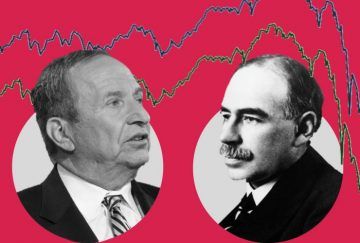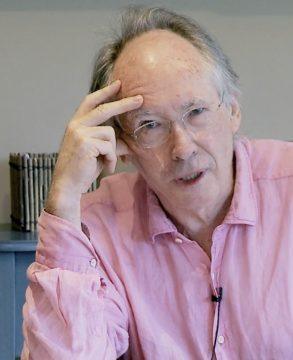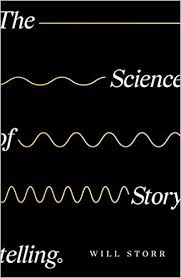by Adele A. Wilby
 A brief scan across global politics generates concerns as to what is actually going on in the politics of many states. Authoritarian regimes have always been with us, and will probably be with us for some time to come. Of greater concern is the emergence of political leaders in liberal democracies who espouse a politics which resonates with the past: a politics of nationalism, and nativism, and the inward-looking thinking that is associated with those ideologies. This trend, in what I would call a ‘regressive politics’, is in opposition to the process of globalisation.
A brief scan across global politics generates concerns as to what is actually going on in the politics of many states. Authoritarian regimes have always been with us, and will probably be with us for some time to come. Of greater concern is the emergence of political leaders in liberal democracies who espouse a politics which resonates with the past: a politics of nationalism, and nativism, and the inward-looking thinking that is associated with those ideologies. This trend, in what I would call a ‘regressive politics’, is in opposition to the process of globalisation.
The ascendency of regressive political tendencies has surfaced and gained force in the states of the two global leaders of liberal democracies: the United States and the United Kingdom from 2015 onwards. Since then we have witnessed a time where the ‘progressive’ in the ‘liberalism’ that is associated with the two states has come under considerable strain.
Glimpses of a beginning of a period of regressive politics in the UK became evident with the publication of the Conservative Party Manifesto of 2015. David Cameron, the leader of the Conservative Party, faced a major political challenge from the political right both inside and outside the Conservative party. On one hand, the incessant grumbling and whining from English nationalists and Euro-sceptics over the ‘sovereignty’ and ‘independence’ of the UK was a persistent source of discontent and division within the Conservative party. The far right anti-European Union political party, the United Kingdom Independence Party (UKIP) was a growing political threat. Read more »



 Tony Conrad’s retrospective of objects produced for galleries or institutions, titled Introducing Tony Conrad, is currently on view at the ICA Philadelphia. “Introducing” because so many people are still unfamiliar with his work. His works were predicated on both the amount of time they took to make and the patience that they required of their audience, which no doubt contributed to his lack of popularity. Conrad, the prodigal Harvard grad, spent his career working through aesthetic problems like an eccentric scientist. This can be gathered from his exhaustive lectures, teaching, and writings on sound and film. Formally, however, the works often look like a child made them. Not in a cynical way denoting lack of care, but in an earnestly amateur approach to object making. Because the works are less concerned with looking skillfully produced and more concerned with what a durational existence might impart onto things, the audience is left with big-picture questions like, what does it mean for an artwork to still be in progress after the artist’s death?
Tony Conrad’s retrospective of objects produced for galleries or institutions, titled Introducing Tony Conrad, is currently on view at the ICA Philadelphia. “Introducing” because so many people are still unfamiliar with his work. His works were predicated on both the amount of time they took to make and the patience that they required of their audience, which no doubt contributed to his lack of popularity. Conrad, the prodigal Harvard grad, spent his career working through aesthetic problems like an eccentric scientist. This can be gathered from his exhaustive lectures, teaching, and writings on sound and film. Formally, however, the works often look like a child made them. Not in a cynical way denoting lack of care, but in an earnestly amateur approach to object making. Because the works are less concerned with looking skillfully produced and more concerned with what a durational existence might impart onto things, the audience is left with big-picture questions like, what does it mean for an artwork to still be in progress after the artist’s death? This is best captured in Conrad’s most well-known artworks, the “infinite duration” Yellow Movies, which were painted yellow squares on paper. The idea was that they would darken and yellow with age over the course of their lifespan, thus constituting an ever-changing work, or “movie” (and for Conrad, the longest durational movie ever, putting Warhol’s Empire (1964) to shame). These works and others in the show capture his fascination with time and what it entails. The objects on view in the retrospective are largely the byproducts of experiments. Conrad, an accomplished experimental musician and filmmaker known for his vexing compositions, took his cue from thorough research into a topic, investigating the variety of forms it could take. For instance, one of the first things visitors see are a selection of handmade instruments using unorthodox materials, like a guitar made from a child’s racquet, or violin affixed to a stationary scrap-wood apparatus. Another instance is Conrad’s pickled film, which he shot and then cured in a vinegar solution in Ball jars, riffing on how film is developed in an alchemical solution.
This is best captured in Conrad’s most well-known artworks, the “infinite duration” Yellow Movies, which were painted yellow squares on paper. The idea was that they would darken and yellow with age over the course of their lifespan, thus constituting an ever-changing work, or “movie” (and for Conrad, the longest durational movie ever, putting Warhol’s Empire (1964) to shame). These works and others in the show capture his fascination with time and what it entails. The objects on view in the retrospective are largely the byproducts of experiments. Conrad, an accomplished experimental musician and filmmaker known for his vexing compositions, took his cue from thorough research into a topic, investigating the variety of forms it could take. For instance, one of the first things visitors see are a selection of handmade instruments using unorthodox materials, like a guitar made from a child’s racquet, or violin affixed to a stationary scrap-wood apparatus. Another instance is Conrad’s pickled film, which he shot and then cured in a vinegar solution in Ball jars, riffing on how film is developed in an alchemical solution.  The great surprise of this debate turned out to be how much in common the old-school Marxist and the Canadian identity politics refusenik had.
The great surprise of this debate turned out to be how much in common the old-school Marxist and the Canadian identity politics refusenik had. You might find your car dying on the freeway while other vehicles around you lose control and crash. You might see the lights going out in your city, or glimpse an airplane falling out of the sky. You’ve been in a blackout before but this one is different.
You might find your car dying on the freeway while other vehicles around you lose control and crash. You might see the lights going out in your city, or glimpse an airplane falling out of the sky. You’ve been in a blackout before but this one is different. “Has economics failed us?” Larry Summers, the former president of Harvard and economic adviser for presidents Barack Obama and Bill Clinton, recently asked
“Has economics failed us?” Larry Summers, the former president of Harvard and economic adviser for presidents Barack Obama and Bill Clinton, recently asked  What’s been preoccupying me the last two or three years is what it would be like to live with a fully embodied artificial consciousness, which means leaping over every difficulty that we’ve heard described this morning by Rod Brooks. The building of such a thing is probably scientifically useless, much like putting a man on the moon when you could put a machine there, but it has an ancient history.
What’s been preoccupying me the last two or three years is what it would be like to live with a fully embodied artificial consciousness, which means leaping over every difficulty that we’ve heard described this morning by Rod Brooks. The building of such a thing is probably scientifically useless, much like putting a man on the moon when you could put a machine there, but it has an ancient history. WHEN JAL MEHTA
WHEN JAL MEHTA One afternoon in August 2010, in a conference hall perched on the edge of San Francisco Bay, a 34-year-old Londoner called Demis Hassabis took to the stage. Walking to the podium with the deliberate gait of a man trying to control his nerves, he pursed his lips into a brief smile and began to speak: “So today I’m going to be talking about different approaches to building…” He stalled, as though just realising that he was stating his momentous ambition out loud. And then he said it: “AGI”. AGI stands for artificial general intelligence, a hypothetical computer program that can perform intellectual tasks as well as, or better than, a human.
One afternoon in August 2010, in a conference hall perched on the edge of San Francisco Bay, a 34-year-old Londoner called Demis Hassabis took to the stage. Walking to the podium with the deliberate gait of a man trying to control his nerves, he pursed his lips into a brief smile and began to speak: “So today I’m going to be talking about different approaches to building…” He stalled, as though just realising that he was stating his momentous ambition out loud. And then he said it: “AGI”. AGI stands for artificial general intelligence, a hypothetical computer program that can perform intellectual tasks as well as, or better than, a human.  Geoffrey Wildanger in the Boston Review:
Geoffrey Wildanger in the Boston Review: James Meadway in Novara Media:
James Meadway in Novara Media: Henry Farrell and Abraham Newman in The National Interest:
Henry Farrell and Abraham Newman in The National Interest: Francisco Goldman in the NYT:
Francisco Goldman in the NYT: Nathan Robinson in Current Affairs:
Nathan Robinson in Current Affairs: T
T